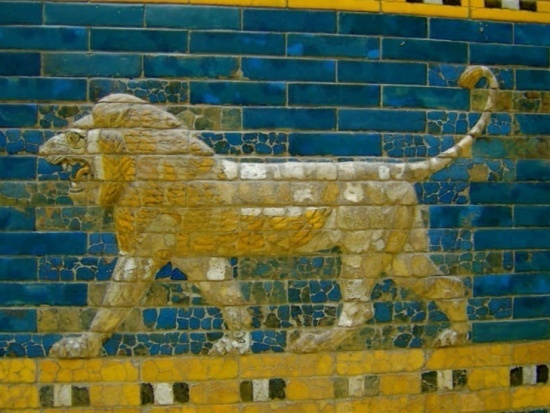"Seventy Weeks" -- Daniel 9:20-27
 Wednesday, November 1, 2017 at 11:18AM
Wednesday, November 1, 2017 at 11:18AM 
The Seventeenth in a Series of Sermons on the Book of Daniel
Daniel’s prophecy of the seventy weeks is one of the most intriguing passages in all the Bible. It is often described by commentators as among the most difficult passages to interpret in all the Old Testament. Many of our contemporaries understand this passage as a map to the end times. But I think the passage makes much more sense when understood as a messianic prophecy foretelling the coming of Jesus, the Messiah. Yes, the passage does tell us much about the end times (in a big picture kind of way), but it does so through the lens of Jesus’ work in fulfilling the six conditions set forth in the prophecy–finishing transgression, putting an end to sin, atoning for iniquity, ushering in everlasting righteousness, sealing both vision and prophet, and anointing a most holy place. As we will see in the weeks to come, these things were, in fact, accomplished by Jesus through the strong covenant which Jesus makes with the many (i.e., the people of God whom the Father chooses to save). If Gabriel’s revelation to Daniel does speak to the end times, it does so in the form of a messianic prophecy, foretelling with an uncanny accuracy the suffering and obedience of the one who fulfills it–the Lord Jesus.
Many of us grew up in churches influenced by dispensationalism. We learned this passage well because it was thought to serve as a guide to the end times. The prophet Daniel supposedly foresees a time (the 70th and final week of the seventy weeks) when Israel is back in the land at or about the time the Gentile church is removed from the earth (the Rapture). The Rapture also marks the dawn of the so-called seven year tribulation period, during which the Antichrist (on this scheme, the one who makes a covenant with Israel) turns upon the Jews in their rebuilt temple in Jerusalem, leading to a final battle (Armageddon) which culminates in the return of Jesus. Although this is the view which dominates much of American evangelicalism, this interpretation is wide of the mark for several reasons we will address in this sermon.
Despite the difficulty and intrigue associated with Daniel’s “seventy weeks,” the passage can be properly interpreted if we spend the time to understand the context in which it is given, as well as developing the biblical theology which underlies the prophecy itself. The first matter we must tackle is the meaning and chronology of the “seventy weeks” to which Daniel refers. What are these weeks? When do the weeks begin, and when do they end? Are we to take the seventy weeks as a literal period of time, or are the seventy weeks better understood symbolically in light of the previous visions recorded earlier in Daniel?
I’m thinking here of the visions of four great empires found in Daniel 2 (Nebuchadnezzar’s dream of a metallic statue interpreted by Daniel), and Daniel 7 (a vision given to Daniel of four great and mysterious beasts). The four metals in Nebuchadnezzar’s statue and the four beasts in Daniel’s vision predict the rise of the four great empires of the ancient near-eastern world: the Babylonian, Persian, Greek, and Roman empires. As will see shortly (as represented in the chart provided), these prior visions provide the context for the vision of the seventy weeks–a context often overlooked by those who see the prophecy as focusing on the time of the end, instead of upon the dawn of the messianic age.
To read the rest of this sermon, Click Here


Reader Comments (1)